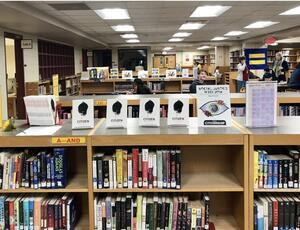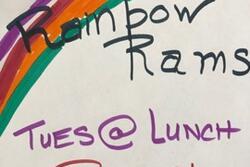Standing for Social Justice at My School
Every year, my high school hosts a Social Justice Week, and this year, I’m the primary organizer. In preparation for the week, our planning committee discusses broad social and political issues, and invites experts and activists from our community to share their wisdom and experiences with the students, teachers, and administrators of my school.
Among the people we’ve invited are formerly incarcerated students to teach us about the transformative power of prison education, members of the National Alliance on Mental Illness to address stigma around mental health issues in school, local environmentalists to discuss climate change action, Jewish studies professors to speak about Holocaust awareness and anti-Semitism, and members of Black Lives Matter Ithaca to engage us in discourse about race, poverty, and privilege. All of these presentations give students the opportunity to participate in conversation about issues and identities with which they may or may not have much experience. Fostering community in school, Social Justice Week also encourages students to engage outside school, and even beyond Ithaca.
I’m organizing this year’s Social Justice Week around the theme of “citizenship.” This choice was inspired by Claudia Rankine’s book, Citizen: An American Lyric, which students and speakers alike have been invited to read in preparation for the event. I’m eager to see how presenters choose to incorporate the theme into their topics, and how students choose to make connections. My hope is that introducing a common text will give us a shared reference point, and language, for thinking together about all of the presentations throughout the week.
Although Social Justice Week is an annual tradition at my high school, this is the first year that students are being encouraged to read a common text. In collaboration with my Associate Principal, we were able to get funding to make the book widely available, and have multiple copies displayed in our library. I chose Citizen because it is powerful, radical, and short, and because Rankine uses different mediums throughout—poetry, prose, and images—to amplify its messages. Rankine’s writing is angry and sympathetic at the same time, which I think is part of what makes it both accessible and subversive.
Another reason I chose this text is because Rankine places the reader directly and actively in the book by using the second person point of view. But her “you” in the book is never obviously or explicitly defined. This method is effective in prompting readers to reflect on when “you” applies to them and when it doesn’t, thus inviting them to gain a better understanding of and appreciation for different life experiences, and of the role that many of us play in reinforcing racist structures and tropes.
When addressing any number of social justice issues, it’s important to try and educate ourselves as much as possible, while also recognizing that we can never fully understand identities we don’t possess and experiences we haven’t personally encountered. While Rankine’s book focuses a lot on issues having to do with racism and racial justice, I hope that students and presenters alike will be able to apply some of the larger related takeaways and lessons during our event.
With Rankine’s text as a guide, students at my school can acknowledge and judge their relationships to power, privilege, and oppression. I’m anticipating a Social Justice Week full of learning, growth, and important conversations.
This piece was written as part of JWA’s Rising Voices Fellowship.







